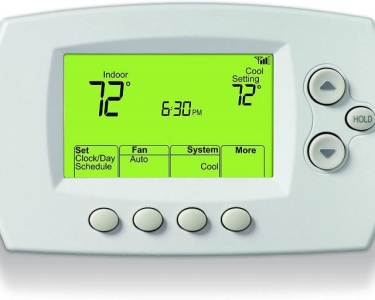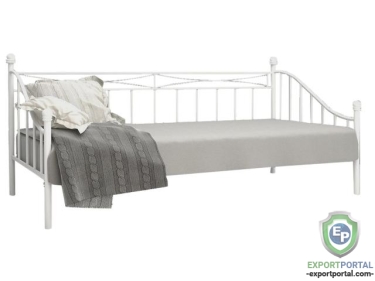Couldn't find the product you want?
Fill out this form to request the product.
Exports

Romania has a developing, upper-middle income market economy, the 17th largest in the European Union by total nominal GDP and the 13th largest based on purchasing power parity. Romania has experienced growth in foreign investment with a cumulative FDI totaling more than $170 billion since 1989.
Until 2009, Romanian economic growth was among the fastest in Europe (officially 8.4% in 2008 and more than three times the EU average). The country is a regional leader in multiple fields, such as IT and motor vehicle production and vehicles export. Bucharest, the capital city, is one of the largest financial and industrial centers in Eastern Europe.
Romania has considerable natural resources for a country of its size, including coal, iron ore, copper, chromium, uranium, antimony, mercury, gold, barite, borate, and many other.
Romania's mineral production is adequate to supply its manufacturing output. Energy needs are also met by importing bituminous and anthracite coal and crude petroleum.
Agriculture employs about 29% of the population (one of the highest rates in Europe), and contributes about 8.1% of GDP. The Baragan is characterized by large wheat farms. Dairy products, pork, poultry, and apple production are concentrated in the western region.
Romania's beef production is located in central region, production for export of fruits, vegetables, and wine ranges from central to southern Romania. Romania is a large exporter of agricultural products and is currently expanding its forestry and fishery industries. Fishing is an economic mainstay in parts of the East of Romania and along the Black Sea coast, with important fish markets in places such as Constanta, Galati and Tulcea. Romanian exports include automobiles, machine tools, and chemicals.
In 2004 Romania enjoyed one of the largest world market share in machine tools. Romanian-based companies such as Dacia, Petrom, Rompetrol, Bitdefender, Romstal and Mobexpert have expanded operations throughout the region. However, small- to medium-sized manufacturing firms form the bulk of Romania's industrial sector.
Romania exports mostly machinery and transport equipment, raw materials, and miscellaneous manufactured articles like textiles and footwear. Romania's main exports partners are other European Union members with Germany, Italy, Turkey and France being the most important.
Customs requirements of Romania
Romania Customs Contacts
Website: http://www.customs.ro/ro.aspx
E-mail: relatiipublice@customs.ro , vama@customs.ro
Address: Str. Matei Millo nr. 13, sector 1, Bucureşti, C.P. 010144
Telephone: + 40 21 315 58 58
Fax: +40 21 313 82 51
Romania is a country situated in Southeastern Europe, bordered by the Black Sea, Bulgaria, Ukraine, Hungary, Serbia and Moldova. Romania is a member of NATO and the European Unio, being the 7th most populous state of the EU.
According to EU legislation, trade policies in Romania must adapt to several general principles such as release for free circulation, transit, customs, warehousing, inward processing, processing under customs control, temporary admission, outward processing and exportation.
Concerning the Romanian import export duties and taxes, the EU imposes some values or quantitative quotas on imports from other countries. It is highly recommended to request an import license before importing such products. Import/export licenses are also mandatory for commodities considered as potentially hazardous to human health or to environment.
When exporting to Romania, the legal basis that should be taken into consideration relates to the European Custom Code. In order to identify the customs value in EU, a transaction value must be indicated. It regards the international freight, insurances and some other charges. The majority of import declarations are acknowledged in connection with the transaction value method. All evaluations, administrative or judicial, concerning the customs valuation decisions may be appealed at the National Customs Authority in Romania.
The EU Custom Code dictates non-preferential and preferential measures. The non-preferential ones are imposed for various reasons dealing with quantitative restrictions, Most-Favored-Nation tariff quotas, origin marking, contingency measures and government procurement. All preferential measures are applied in accordance with preferential arrangements.
When dealing with import export duty and taxes regime, the custom tariffs are generally adapted to EU stipulations. In this manner, Romania guarantees the most-favoured-nation (MFN) treatment or improved treatments to WTO or other non-members of WTO.
Import procedures
An import declaration is required for goods from third countries such as the US. When goods are imported into Romania, it is the responsibility of the importer or his authorized agent to declare them to Customs. A Single Administrative Document or SAD is used for this purpose. This is the approved form for the import declaration process.
The Single Administrative Document (SAD) may be submitted to Customs, either through physical means or through an electronic declaration.
Goods are released from Customs for “free circulation” once the pertinent documents have been filed and payment of tariff duties has been completed. After paying the value added tax (VAT) and any other applicable excise duty, goods are also released for consumption and ready to be marketed.
Tariffs
Romania is a member of the European Union and shares the Common External Tariff regime. EU duties are charged by Customs on the CIF (cost, insurance and freight) value of the product imported into Romania.
Labelling requirements:
The following information must be present on the label:
- Product type (trademarks, brand names)
- List of ingredients (preceded by the word “Ingredients”; must show all ingredients (including additives), ingredients liable to cause allergies or intolerances should be also clearly indicated)
- Net quantity in metric units
- Date of minimum durability
- Special conditions for keeping or use
- Name or business name and address of the manufacturer, packager or importer established in the European Union
- Country of origin
- Alcohol content for beverages containing more than 1.2% by volume
- Lot identification with the marking preceded by the letter "L"
Required documents
The following is a list of the documents that are required and/or recommended when importing alcohol beverages into Romania or any other EU member state:
- Commercial invoice
- Customs Value Declaration
- Freight Insurance
- Freight documents
- Customs Import Declaration (SAD form – a common import declaration form for all EU Member States; must be drawn up in one of the official languages of the EU)
- Packing List
- Certificate of Origin
- Insurance certificate
- Simplified Export Certificate (for wine only)
Sources:
http://www.rolegal.com/article/romanian-import-export-duty-and-taxes
https://www.kpmg.com/RO/en/IssuesAndInsights/ArticlesPublications/news/Documents/vama-EN-Web.pdf
http://www.ttb.gov/itd/romania.shtml

